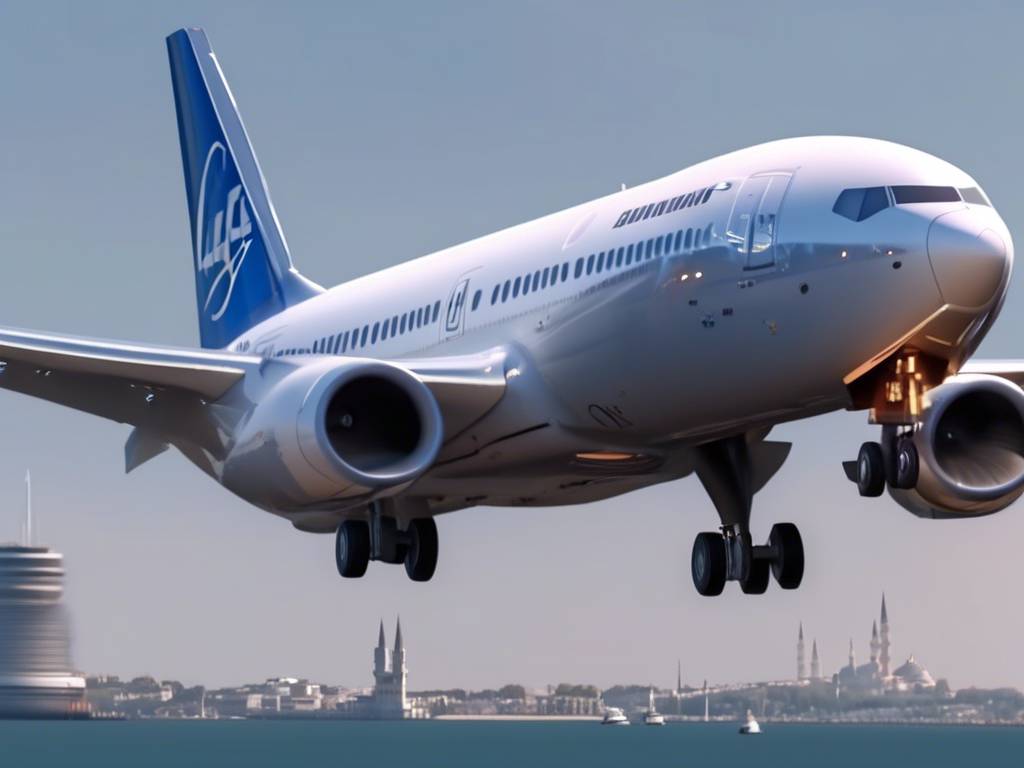The Perilous Landing of a Boeing Plane in Istanbul 🛬
If you’re a crypto enthusiast who values timely updates in the aviation world, you may have come across the recent incident at Istanbul Airport involving a Boeing 767 cargo plane operated by FedEx Airlines. The plane made a daring landing without its front landing gear, leaving viewers in shock but ultimately relieved that there were no casualties.
The Terrifying Landing Without Front Landing Gear 🛬
The CCTV footage captured the nail-biting moment when the Boeing 767 touched down on the runway on its nose, with sparks flying as the metal scraped against the tarmac. The plane, which had experienced technical difficulties leading to the malfunction of the front landing gear, managed to skid to a stop without veering off the runway.
- The Turkish Transport Ministry confirmed the incident, stating that all crew members on board were safe and uninjured.
- The pilot’s skill and quick thinking in executing the emergency landing were praised for preventing a potential disaster.
- The arrival of emergency response teams at the scene ensured that any potential risks of fire or further damage to the aircraft were swiftly addressed.
The Aftermath and Investigation 🕵️♂️
Following the emergency landing, authorities immediately began investigating the root cause of the malfunction in the plane’s landing gear system. This incident raised concerns about the safety protocols and maintenance procedures within the aviation industry, prompting a thorough review of operational standards.
- Experts from Boeing and FedEx Airlines were called in to assist with the investigation and provide insights into potential technical failures that could have led to the landing gear malfunction.
- The black box data from the flight was retrieved and analyzed to gain a better understanding of the sequence of events leading up to the emergency landing.
- The incident sparked discussions about the importance of regular maintenance checks and the need for stringent safety measures to prevent such incidents in the future.
Lessons Learned and Industry Impact 📚
As the aviation industry grapples with the aftermath of this harrowing incident, there are valuable lessons to be gleaned to improve safety standards and emergency response protocols.
- Enhanced training programs for pilots and crew members to handle emergency situations with precision and composure have become a focal point for industry stakeholders.
- Advanced technology and innovations in aircraft design are being explored to mitigate risks associated with landing gear failures and other mechanical malfunctions.
- Collaborative efforts between regulatory bodies, airlines, and manufacturers are essential to reinforce safety measures and uphold the highest standards of operational excellence in the aviation sector.
Embracing a Culture of Safety and Preparedness 🛫
While the incident of the Boeing plane landing on its nose in Istanbul served as a stark reminder of the unpredictable nature of aviation operations, it also highlighted the resilience and professionalism of the individuals involved in ensuring a safe outcome.
- Building a culture of safety consciousness and proactive risk management is crucial for safeguarding the lives of passengers and crew members in the aviation industry.
- Continuous training, regular drills, and simulations of emergency scenarios are vital components of fostering a culture of preparedness and readiness among aviation professionals.
- By learning from past incidents and implementing robust safety measures, the industry can move towards a future where such emergencies are handled with efficiency and expertise.
Hot Take: Reflecting on Safety in Aviation 🚁
As you reflect on the news of the Boeing plane’s risky landing in Istanbul, it serves as a poignant reminder of the importance of safety and vigilance in the aviation sector. The incident underscores the critical role played by skilled pilots, competent crew members, and stringent safety protocols in safeguarding the integrity of air travel. By prioritizing safety, preparedness, and continuous improvement, the aviation industry can navigate challenges and crises with resilience and unwavering commitment to passenger well-being.





 By
By

 By
By
 By
By
